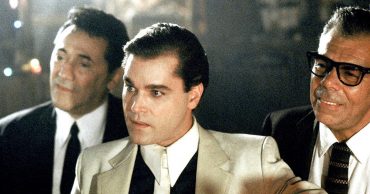
Tyson’s Run received mixed reviews from critics, but regular audiences seem to have thoroughly enjoyed the drama film. The movie was written and directed by Kim Bass, who previously worked on projects like Sister, Sister, In Living Color, Kenan & Kel, and Kill Speed. The dramatic movie stars Rory Cochrane, Amy Smart, Major Dodson, and Academy Award-nominated actor Barkhad Abdi. Tyson’s Run‘s plot is as follows: “When fifteen-year-old Tyson attends public school for the first time, his life is changed forever. While helping his father clean up after the football team, Tyson befriends champion marathon runner Aklilu. Never letting his autism hold him back, Tyson becomes determined to run his first marathon in hopes of winning his father’s approval. With the help of an unlikely friend and his parents, Tyson learns that with faith in yourself and the courage to take the first step, anything is possible.” If you enjoyed the movie and you’d like to watch more with similar themes, you’re in luck. Here are five movie recommendations for anyone who enjoyed the movie Tyson’s Run.
Please Stand By
Like in Tyson’s Run, Please Stand By features a protagonist who also has autism. The movie depicts the story of an autistic woman who runs away from her caregiver to submit a Star Trek script to a writing competition in Hollywood. The plot of the movie is as follows: “Wendy sees things differently: she’s fiercely independent, with a brilliant mind and a mischievous sense of hilarity. Wendy also has autism. To her, people are an indecipherable code and the world’s a confusing place. Inspired by her no-nonsense caregiver, Wendy comes of age and escapes from her care home on the road trip of a lifetime to deliver her 500-page script to a writing competition.” Please Stand By features an impressive list of cast members, which includes Dakota Fanning in a starring role. The movie also has Toni Collette, Alice Eve, Patton Oswalt, Michael Stahl-David, and River Alexander. While reviews of the movie had been mixed, Glen Kenny of RogerEbert.com was generous with his review, writing: “A sensitive character study whose story beats are a little bit overly familiar.”
The Boy Who Could Fly
The Boy Who Could Fly is a classic ’80s movie featuring a protagonist with autism. Like Tyson’s Run, the movie also features the protagonist’s personal growth with the help of a mentor. The synopsis of the film is as follows: “Kindly adolescent Milly (Lucy Deakins) moves in next door to autistic teen Eric Gibb (Jay Underwood). The mute Eric, whose parents were killed when he was 5 years old, lives with his hard-drinking uncle, Hugo (Fred Gwynne), and is obsessed with birds. His tendency to stand on rooftops and window ledges posed as if he’s flying alarms his social workers, but when Eric saves Milly from a potentially deadly fall, she begins to believe that the boy really can take flight.” Mostly positively reviewed by critics, The Boy Who Could Fly has been praised by Kevin Thomas of Los Angeles Times, who wrote about the film: “The Boy Who Could Fly” is as fragile as a kite, yet it’s kept aloft by the commitment of writer-director Nick Castle and the talent and presence of lovely young Lucy Deakins, who has that crucial gift of catching us up in her imagination.”
Forrest Gump
Who hasn’t watched Forrest Gump? Still, it deserves a spot here for similar themes between the Oscar-winning film and Tyson’s Run. Forrest Gump was directed by Robert Zemeckis and starred Tom Hanks, Robin Wright, Gary Sinise, Mykelti Williamson, Sally Field, and Rebecca Williams. In a recent review of the 1994 film, James Wegg of JWR wrote: “Seeing this 1994 winner of Best Picture in 2022, immediately reminded me of how far cinema has come in portraying the “different amongst us.”
Chariots of Fire
Chariots of Fire doesn’t portray someone with autism, but rather highlights the struggles two runners experience as they train for the 1924 Paris Olympics. “In the class-obsessed and religiously divided United Kingdom of the early 1920s, two determined young runners train for the 1924 Paris Olympics. Eric Liddell (Ian Charleson), a devout Christian born to Scottish missionaries in China, sees running as part of his worship of God’s glory and refuses to train or compete on the Sabbath. Harold Abrahams (Ben Cross) overcomes anti-Semitism and class bias, but neglects his beloved sweetheart Sybil (Alice Krige) in his single-minded quest.” In a New York Daily News review, Kathleen Carroll wrote: “Chariots of Fire” reasserts the importance of the so-called old-fashioned virtues of moral courage and personal integrity and, as such, it is a movie that, with the help of Vangelis Papathanassiou’s wonderfully stirring music, lifts the spirits to a new high. The actors seem to have been born to play their roles. Cross’ brooding intensity contrasts perfectly with Charleson’s quiet dignity. Brad Davis and Dennis Christopher play what amounts to run-on parts as American Olympic competitors, but their presence adds to the movie’s rich texture. Ian Holm is a sure candidate for a best supporting Oscar for his crusty performance as Abrahams’ coach who comes to think of him as his son.”
Marathon
Last on the list is a South Korean film with a very similar plot as Tyson’s Run. Marathon tells the story of a young man with autism who finds satisfaction in running. With the help of his mother, he participates in a major marathon. The movie stars prominent South Korean stars, like Cho Seung-woo, Kim Mi-sook, Lee Ki-young, Baek Sung-hyun, and Ahn Nae-sang. Asian Movie Web gave Marathon a glowing review, writing: “Marathon” is a touching and an outstandingly well achieved drama, that despite its manipulative nature can touch the viewer. Every now and then, first time director Jeong Yoon-Chul gets lost in some clichés with his pictures, nonetheless there are also lots of moments that are imbued with an exceptionally likeable kind of magic. At the same time we are shown that the main character in no way suffers from autism, because “suffer” would apply to an illness, but not to this kind of handicap. Cho-won just sees the world in a different way than others do. Even though there are lots of emotions involved, naturally, since he is also a burden for his environment at times, director Jeong does convey a very positive mood most of the time, which can only be described as heart-warming and moving.”
 Follow Us
Follow Us




